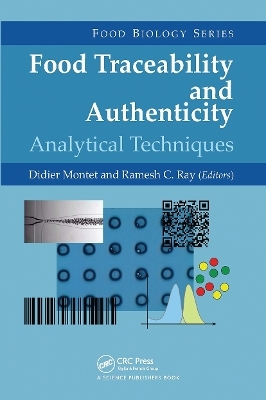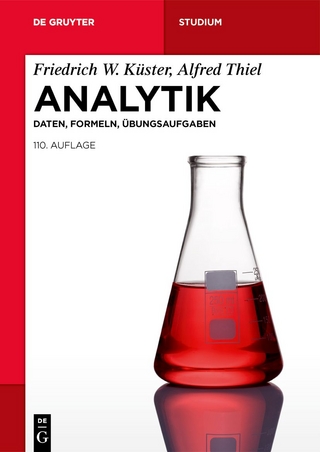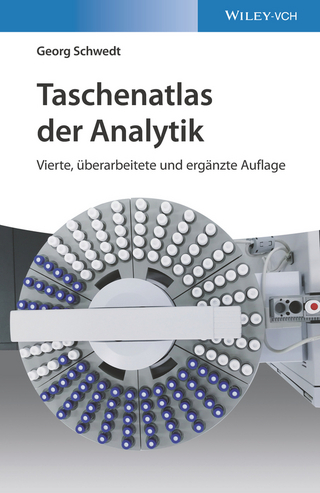
Food Traceability and Authenticity
CRC Press (Verlag)
978-0-367-78166-8 (ISBN)
Food traceability is a growing consumer concern worldwide. Traceability is undertaken primarily at the administrative level, where the use of advanced analytical tools is not available. Nevertheless, the determination of geographical origin is a requirement of the traceability system for the import and export of foodstuffs (EU regulation 178/2002).
The topics covered in this book include the history of traceability; legislations and rules; the actual traceability techniques and the potential analytical techniques for food traceability such as molecular methods (e.g. DGGE, SSCP), next generation sequencers (NGS), bio-captors, chromatographic techniques, isotopic analysis that are used for discrimination of organic food, fish, oils. The chromatographic techniques help in the use of volatile compounds analysis. The isotope analysis helps in distinguishing between chicken meat and vegetable oils. Ambient mass spectrometry is used for studying mycotoxines and alkaloids in foodstuffs and their management, food and feed authentication in olive and other plant oils, and wine. Vibrational methods (e.g. NMR and NIRS) are used to trace food by global spectrum. The book reviews the current and future techniques including metabolomic techniques.
Didier Montet is employed on the Food Safety Team at CIRAD, France. Ramesh C. Ray is employed at ICAR - Central Tuber Crops Research Institute, India.
History of Food Traceability. Actuality on Food Traceability. Traceability in French and European law. Emerging Trends in Traceability Techniques in Food Systems. Chemical and Biological ‘Barcodes’ or Markers in Food Traceability-a Case Study on Wines. Traceability and Authentication of Organic Foodstuffs. Geographical Origin Traceability of Foodstuffs Using a Molecular Technique PCR-DGGE. Capillary Electrophoresis-Single Strand Conformation Polymorphism (CE-SSCP) as a Tool for Water Traceability. Next Generation Sequencing in Food Authenticity and Safety. Detection of Biomolecules Using Surface Plasmon Resonance (SPR) Technology for Food Quality and Traceability. Advances in Authentication Methods for Seafood Species Identification in Food Products. Food Traceability and Authenticity Based on Volatile Compound Analysis. Analytical Tools in Authenticity and Traceability of Olive Oil. Analytic Aspects of Mycotoxin traceability. Authentication of Farmed Animal Diet. Authentication and Traceability of Agricultural and Food Products Using Vibrational Spectroscopy. Biocaptors and barcodes: new devices for the traceability and authenticity.
| Erscheinungsdatum | 06.04.2021 |
|---|---|
| Reihe/Serie | Food Biology Series |
| Verlagsort | London |
| Sprache | englisch |
| Maße | 156 x 234 mm |
| Gewicht | 771 g |
| Themenwelt | Naturwissenschaften ► Biologie |
| Naturwissenschaften ► Chemie ► Analytische Chemie | |
| Technik ► Lebensmitteltechnologie | |
| ISBN-10 | 0-367-78166-2 / 0367781662 |
| ISBN-13 | 978-0-367-78166-8 / 9780367781668 |
| Zustand | Neuware |
| Haben Sie eine Frage zum Produkt? |
aus dem Bereich


